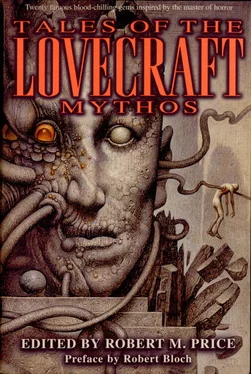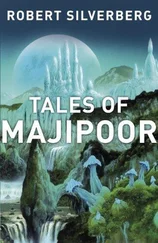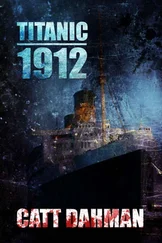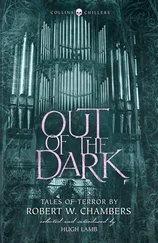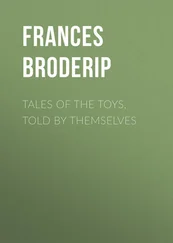He particularly liked Robert E. Howard’s creation Nameless Cults (rendered into German by August Derleth and E. Hoffmann Price as Unaussprechlichen Kulten ) and made extensive use of it in a revision written with Duane Rimel, “The Tree on the Hill,” in which appeared yet another new tome, Rudolph Yergler’s The Chronicle of Nath , invented by either young Rimel or his mentor. Smith added The Book of Eibon , which Lovecraft delighted to use, and in the last stages of the game HPL had welcomed into the canon young Henry Kuttner’s The Book of Iod (rather too close to Smith’s Book of Eibon , one might judge), and probably Willis Conover’s Ghorl Nigral by Herrmann Mulder, about which HPL himself wrote a shuddery anecdote in a letter to Conover.
Much controversy continues to surround the vexed question of whether and to what extent Lovecraft meant the reader to understand his eldritch entities as unknown deities (HPL’s explicit acknowledgment of their ultimate origin in Dunsany’s The Gods of Pegana would suggest this) or simply as aliens from outer space taken for gods (a la Erich von Daniken, Chariots of the Gods ), as references in many tales imply. It can be argued both ways, and the issue is further complicated if, as I think, Lovecraft intended some of the beings to be superhuman aliens and others as real gods worshipped by these aliens.
But the really crucial question in post-Derlethian interpretation of the Mythos is whether it is harmonious with Lovecraft’s conception of things to envision a cosmic war waged between different superhuman races. Derleth attributed to Lovecraft his own notion of a primordial contest between the benevolent Elder Gods and the Satan-like Old Ones. Derleth, in his introduction to Tales of the Cthulhu Mythos and elsewhere, made explicit this parallel between Christian and Cthulhuvian myths.
Interpreters from Richard L. Tierney and Dirk W. Mosig on have hotly repudiated this whole schema, derisively dubbing it “the Derleth Mythos.” They saw in Derleth’s framework, especially in the Christian parallel, the imposition of a Good versus Evil schema foreign to Lovecraft’s original, morally neutral conception. While such an understanding would indeed represent the grossest rending of the Lovecraftian fabric, I am not convinced that critics have correctly understood Derleth at this point.
In a book that is an explicit homage to Derleth’s seminal Mythos anthology it is perhaps not amiss to take a moment to defend him. Though Derleth did sometimes in his own Lovecraft pastiches say he was pitting good entities against evil ones (he makes this explicit in, e.g., “The Return of Hastur”), it is not apparent that this turns out to make much difference. Rather we simply have protagonists like Seneca Lapham and Laban Shrewsbury defending human interests against inhuman/superhuman ones, just as we had in Lovecraft, where after all we do occasionally see Henry Armitage and Martinus Bicknell Willet trying (and even succeeding!) to prevent the planet from being cleared of human beings.
And in Lovecraft’s “The Dunwich Horror” Armitage does not hesitate, as Mosig would have, to call the ancestral faith of the Whate-leys a “wicked cult.” In “The Thing on the Doorstep,” delvers into forbidden lore (“It’s the devil’s business.”) are called “evil souls.” Both authors have their characters call the Old Ones “evil” from an admittedly anthropocentric perspective, not an objective, “cosmicist” one.
Too much has been made by Derleth’s critics of the use he made of the Elder Gods/Old Ones conflict. A close look at Derleth’s Lovecraftian fiction will reveal that Derleth himself saw both groups simply as powerful races of space aliens, as ought to be obvious by his locating the Elder Gods in the vicinity of Betelgeuse (their name for which, Glyu-Vho, Lovecraft himself supplied for Derleth!). And had not HPL made considerable use of the theme of warring alien races, with human earth as their battleground?
Indeed many of Derleth’s most strident critics deem At the Mountains of Madness and “The Shadow out of Time” the greatest works of Lovecraft, and it is in these novellas that such conflicts between “Elder Ones,” “space-devils,” and “Cthulhu-spawn” abound!
Another modification for which Derleth’s critics cannot forgive him is his apportioning of the Lovecraftian entities among the hackneyed categories of the four elements, so that Cthulhu becomes a water-elemental, Nyarlathotep an earth-elemental, etc. Actually this was not Derleth’s idea. He accepted it from Francis T. Laney, a fan whose glossary of the Lovecraft Mythology Derleth read, liked, and reprinted. In fact we owe Derleth’s fire-elemental Cthugha to Laney: Derleth created him (in a singularly uninspired moment) to plug the gap left gaping by Lovecraft who had not obliged Laney by creating any fire-elementals… or, come to think of it, any air-elementals, either! Hence the birth of Lloigor and Zhar, and the pressing into service of Blackwood’s Wendigo under the Derlethian alias Ithaqua, and of Bierce’s and Chambers’s Hastur.
Mosig had great fun pointing out how ill-fitting the whole schema was. How could Cthulhu be a water-elemental when, on Derleth’s own reading, he was imprisoned under water! But in this case Derleth is more nearly right than Mosig, since after all Cthulhu is described as having the head of an octopus and to be served by the ichthyic Deep Ones! Cthulhu’s imprisonment is not constituted by the simple fact that he is under water, but by the fact that he is sealed in the barnacled tower of R’lyeh, as Lovecraft’s own Necronomicon quote (in “The Dunwich Horror”) says!
Even here I am willing to give Derleth (and Laney) the benefit of the doubt. Granted, the whole elemental business was handled pretty inanely, but the basic notion appears not to be so utterly foreign to Lovecraft at all. In Lovecraft’s stories it is clear that the monstrous elder races do symbolize certain geographic areas or particular landscapes which Lovecraft found potently evocative. We are told that in his night-time walks he would pause before a shadowed arch or a decrepit house and allow his imagination to people its recesses with unknown ghouls and ghosts. When he created the crinoid Old Ones in the ice-fields of Antarctica, or the crustacean Outer Ones of the domed Vermont hills, isn’t it obvious that these entities were in fact intended as incarnations of the sheer strangeness of nature in these places? In a passage of foreshadowing in “The Whisperer in Darkness” Lovecraft actually calls the Outer Ones “elemental spirits.”
Thus in an important sense, the Old Ones are indeed elementals. Can anyone deny that Lovecraft gave Cthulhu the pronounced traits of a mollusk precisely because of his loathing for wriggling sea-life? Thus Cthulhu turns out to be precisely a sea-elemental, Mosig notwithstanding.
Now if Mosig wanted to fault Derleth for writing poor stories in which what ought to remain implicit became explicit, that is another matter. But in fact it is quite evident that Mosig and his disciples were concerned to prosecute what seemed to them almost a religious heresy. They sought, in my view, to defend a system abstracted from Lovecraft , and thus more Lovecraftian than Lovecraft. Mosig had damned Derleth for, among other sins, stripping away the veil that hung before Lovecraft’s mythic lore and creating in its place a dry and over-explicit systematic theology. True, in his poorer work, much of it tossed off casually as filler for Weird Tales , Derleth did indeed commit this sin (though here he was led astray by Francis Laney, and he never sinned so grievously in this respect as Lin Carter did later).
But the pendulum swung fully to the other extreme as Mosig proceeded to substitute his own abstract system for Derleth’s, setting forth his own systematic philosophy of Lovecraft’s fiction and criticizing not only Derleth (explicitly) but even Lovecraft (implicitly) for failing to stick to it. It is amusing to note how Mosig’s successors have had to resort to dismissing Lovecraft’s own “The Dunwich Horror” as irony (“He can’t have meant it! — or my theory’s shot to hell!”) or “The Whisperer in Darkness” as self-parody. I cannot help but recall how in his seminars the great Swiss theologian Karl Barth would sometimes respond to a student question by first turning to one particularly astute graduate student and asking, “Mr. So-and-So, would you please give us the Barthian reply?… Thank you, and now for what I myself think.”
Читать дальше
